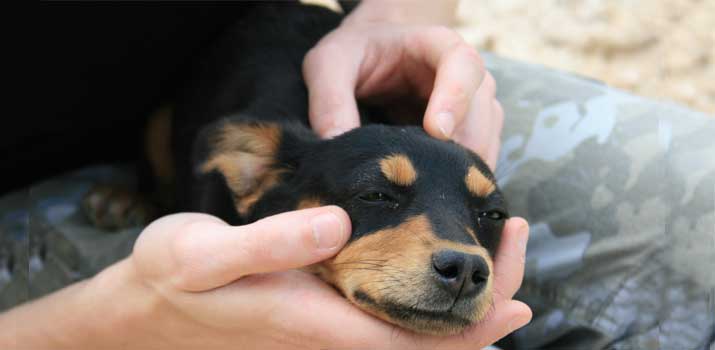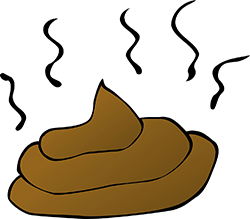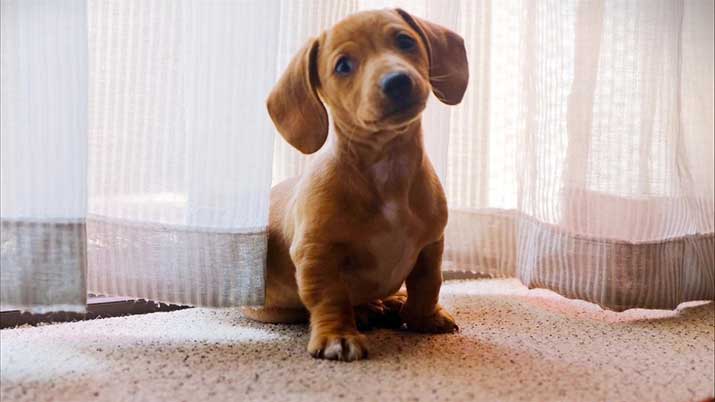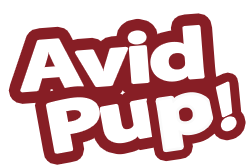
Like human babies, puppies must go through the uncomfortable process of teething. During this time, tiny sharp teeth poke through the gums, causing intense pain for your pooch!
It’s common for pups to act out during this time. Teething isn’t pleasant for dogs or their owners. However, it’s just one hurdle your dog has to overcome on their way to adulthood.
Every dog reacts differently to teething. For some, your only worries revolve around what your young canine companion will destroy next. But for others, it can cause some unpleasant physical symptoms. One common issue that many owners notice is diarrhea.
Do dogs get diarrhea when teething? The answer might surprise you.
Understanding the Teething Process
Before we get into the meat of this question, let’s talk about teething and what it entails. This period can be alarming if you’ve never raised a young puppy. It can catch you off guard due to the sudden behavioral changes in your otherwise lovable dog.
Teething typically starts at around two months of age. The size and breed of the canine may make that sooner or later, but eight weeks is the general norm.
At first, puppies develop deciduous teeth, also known as milk teeth. These are akin to baby teeth in humans and other mammals. They’re a little different from the standard teeth your dog will get later.
First, they’re significantly sharper. That can prove to be a problem for you! The sharpness is capable of getting through furniture, shows, and anything else your pup gets ahold of during this stage.
Another substantial difference is the number of deciduous teeth that break through the gums. Puppies only get 28, which is less than what develops later.
Contrary to what some novice puppy owners think, seeing those baby teeth break through is not the end of the teething process! Your dog must shed the deciduous teeth as the adult teeth come in.
Over the course of about six months, your pup’s sharp teeth will fall out. It usually starts with the incisors and ends with the premolars.
By the time your dog is a year old, it should have 42 fully formed adult teeth.
Teething Behaviors
So, what kinds of behavior can you expect from a teething puppy?
Be prepared for a rocky road ahead! As mentioned earlier, teething is a painful process. Your pup’s body is going through many changes, but teething is one that they have a little more conscious control over.
They can’t speed up the process by any means, but your dog will do everything in their power to alleviate pain.
Expect constant chewing on furniture. During this time, pups aren’t picky. They’ll chew toys, shoes, pillows, and more. Your pooch may even attempt to gnaw at your hand if they get the chance. It can be frustrating, but remember that this behavior is all an attempt to stop the pain.
The best thing you can do is provide plenty of chew toys.
Many popular brands make heavy-duty products that specifically target teething puppies. They’re well worth the consideration!
In addition to incessant chewing, your dog may become irritable. Again, that’s understandable, considering the pain it’s in.
Unfortunately, they may also lose their appetite, skip meals, and become lethargic. In some cases, puppies will develop fevers.
Drolling can become a problem, too.
Excessive saliva production is one of the first signs of teething you may notice. It’s usually accompanied by bad breath and tinges of blood.
Don’t be alarmed if you see blood on the objects your puppy chews. It’s normal. As long as blood doesn’t gush out of your dog’s mouth, there’s no need to worry.
Related: Reasons Why Your Dog Eats Your Underwear
Does Teething Cause Diarrhea in Puppies?

Teething can, indeed, cause diarrhea in puppies. It’s one of many physical symptoms that can afflict your dog. There are a few reasons why this problem occurs.
One accepted theory is that it’s a byproduct of excessive drooling. Like babies, puppies will start to produce tons of saliva as those sharp teeth come in. Your pup will inevitably swallow some.
It’s not unheard of for puppies to swallow so much saliva that they lose their appetite or experience stomach upsets. When that occurs, your pup may suffer from soft stool or vomiting.
Another potential cause of diarrhea during the teething process is accidental ingestion of items they shouldn’t have swallowed.
Puppies are in so much discomfort during the teething stage that they will put anything in their mouth. They don’t give it a second thought. Unfortunately, some unwanted things will end up in their system.
Not only do you have to worry about your puppy swallowing something they can choke on, but you also have to consider the risks involved with germs.
No matter how clean your home is, bacteria and viruses lurk around every corner. If your pup puts its mouth on something dirty, it can easily get sick.
Weak Immune System
Puppies already have a weakened immune system. Their bodies are still developing, and their immunity is nowhere near as strong as adult dogs. As a result, there’s a higher risk of viral infections.
The good news is that most bouts of diarrhea are no big deal. These digestive issues typically resolve themselves in a couple of days.
If diarrhea persists or is accompanied by bloody stool and other substantial symptoms, don’t hesitate to bring your dog to the vet.
Puppies and Diarrhea: Is It Normal?

Before you start freaking out about your pup’s diarrhea being linked to teething, you must remember that stomach problems are relatively common for young canines.
As we said earlier, their bodies are still developing. The immune system simply isn’t strong enough to ward off all the nasty things your pup puts in its mouth.
Soft stool is part of the territory and can happen more often than you think on your puppy’s journey to maturity.
There are also many other potential causes.
For example, many pups will develop food intolerances or have sensitive stomachs. Switching foods, especially going from puppy formulas to adult formulas, can cause stomach upsets. Even minute changes to your puppy’s diet can wreak havoc on its system for a day or two.
Puppies can also get bacterial and viral infections.
Bacteria like Salmonella, E. Coli, Clostridium, and more are known to cause diarrhea. The same goes for viral infections like parvovirus and distemper.
If you suspect serious bacteria or viruses are to blame, it’s best to bring your dog to a vet.
Keeping them updated on their shots will help your pup avoid potentially lethal complications from parvovirus and distemper. Meanwhile, veterinary care can help address bacterial infections.
Parasites are another thing you must keep an eye out for when monitoring stool condition. Puppies are very susceptible to worms.
Many get them from their mothers and already have the parasites in their system at birth. Others might get worms from their environment or from putting something infected in their mouths.
Related: How Often You Should Worm a Puppy
Finally, diarrhea can also come from stress!
Believe it or not, being in high-stress situations will cause many problems in your pup’s digestive tract. Usually, stress comes from being alone and feeling insecure in your home. But for some pups, the pain of teething is more than enough to create stress-related diarrhea.
How to Treat Diarrhea in Puppies
Typically, bouts of teething-related diarrhea don’t last long. But all puppies are different. It may last upwards of two days for particularly bad cases. So how can you provide relief?
If your furry friend has severe diarrhea, consider taking them off food entirely for about 12 hours.
If your pup attempts to eat, the additional food in the system will only create more problems. No matter how much your dog begs, give them half a day for the stomach to settle.
Make sure water is available around the clock. Puppies easily get dehydrated when they have diarrhea, so you must ensure that clean drinking water is available when they need it.
After 12 hours, you can reintroduce foods. Consider going for a bland diet. You can try a limited-ingredient commercial dog food or one of the many DIY recipes.
The goal is to remove any potential allergens that could worsen the situation.
Bring your puppy to the vet if the problem persists beyond 48 hours. Collect samples of the stool if possible to allow for testing.
Vets can examine your dog, rule out any serious health complications, and provide medications to bring your pup back to good health. Depending on the situation, they may recommend diarrhea medicine, probiotic boosters to heal the gut microbiome, and specialty diets.
Conclusion
Teething is tough, and no owner wants to see their little pal go through so much. Throwing diarrhea into the mix adds insult to injury, but it’s the reality of the situation.
There’s not much you can do beyond supplying your teething puppy with safe chew toys. But even then, stomach upsets can occur.
Support your dog the best you can and monitor their stools to make a note of any changes. Diarrhea is normal throughout the puppy years, but don’t hesitate to visit a vet if you notice something is off.
Be vigilant and love your puppy through this crazy time. Before you know it, they’ll have their adult pearly whites and become pain-free.
Also read: Why Do Dogs Chatter Their Teeth?

